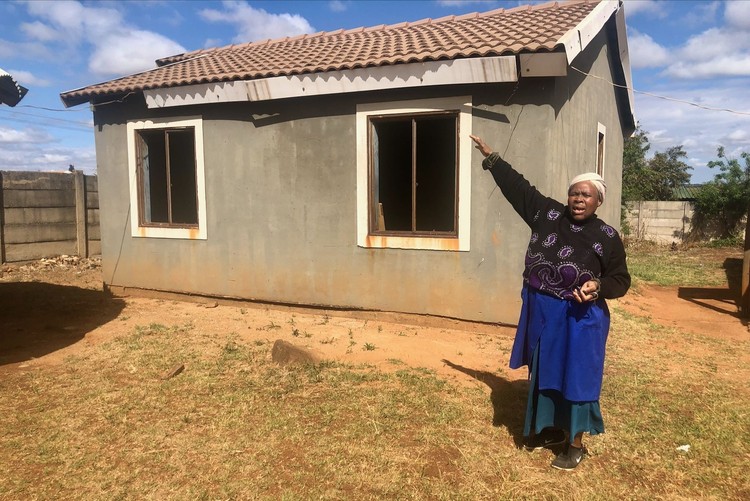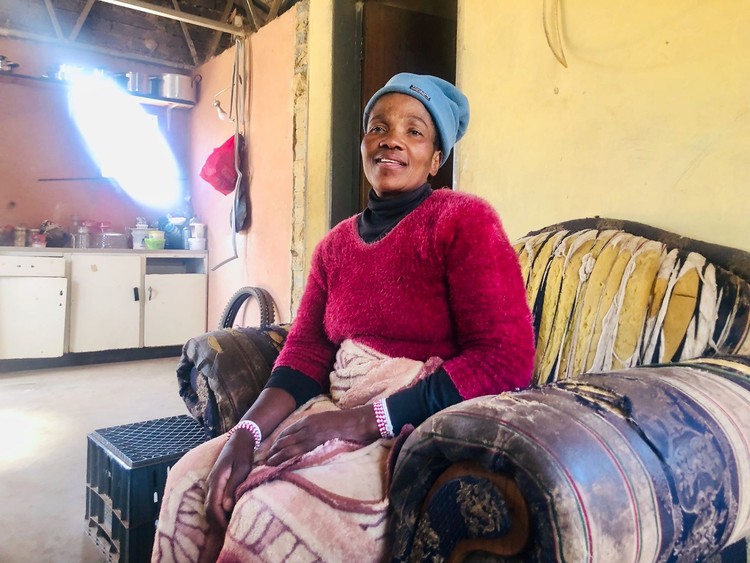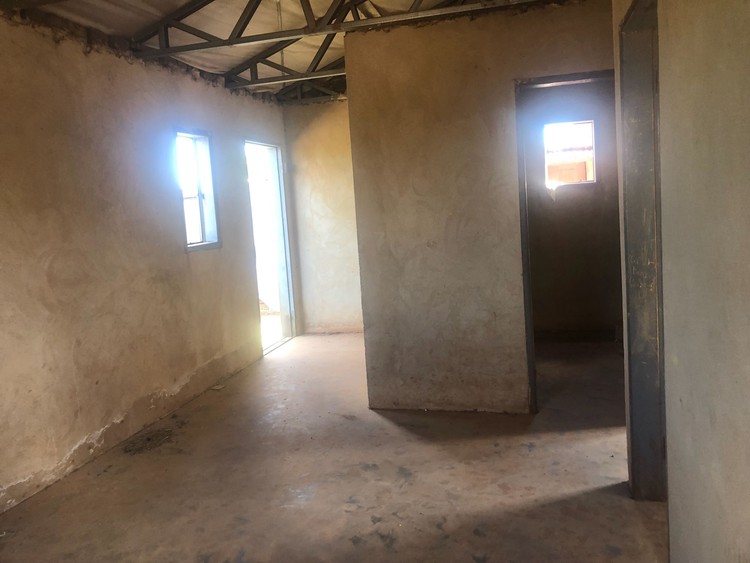RDP houses left incomplete for eight years
Kanana Park residents in Johannesburg have had to finish construction at their own cost if they can afford it
Community leader Elizabeth Polisi says her daughter had to move to her home and now lives with her because her house was never completed. Photos: Silver Sibiya
- An RDP housing project in Kanana Park, Johannesburg, ground to a halt eight years ago.
- The homeowners have been left to complete the construction of their homes at their own expense.
- The mayor’s office and the City’s human settlement department, which is the implementing agent, ignored GroundUp’s requests for comment.
Beneficiaries of an RDP housing project in Kanana Park, 30km south of Johannesburg, have been left with incomplete houses for eight years. The homeowners, mostly former backyarders, say they have had to finish construction at their own expense. But not all owners can afford to cover the costs. Some beneficiaries only received concrete slabs with no top structures.
Although already in progress, the project was “unveiled” in 2012 by then President Jacob Zuma, promising 3,101 houses: 1,793 government subsidised units (RDP), 756 social rental units, and 552 bonded units.
The Kanana Park Housing Development was a project of the City of Johannesburg and subsidised by the Gauteng province.
“It was the first time that a president came here, and I guess it will never happen again. We were promised this area would be developed and have shopping centres and parks, but that never happened,” said community leader Elizabeth Polisi.
Her daughter’s house was never completed and is now abandoned. She now lives with Polisi.
She said government officials do visit the area to see the nonexistent progress but nothing ever comes of these inspections.
“They started building my house about 15 years ago,” said Mawonga Noqanda. “They left the concrete slab for about eight years. Later on, they built the walls and put on the roof, around 2016.”
Noqanda became impatient and bought the doors and window glass himself.
Othilia Ngwenya said that after her house stood incomplete for four years, her children helped her to buy the doors and windows. There was still no geyser, ceiling, toilet seat, bathtub or electricity.
The bulk infrastructure is in place – piped water, sewage, electricity – but the roads are gravel, in poor condition and nearly impassable when it rains.
Othilia Ngwenya had to complete her RDP house out of her own pocket.
Gauteng Department of Human Settlements spokesperson Tahir Sema said, “In 2014 the then City of Joburg took a decision to cancel the agreement with service providers, as a result, the houses were not completed”.
In 2014, the ANC’s Parks Tau was mayor.
Sema said the department was investigating incomplete housing projects and “professional teams” were conducting “structural assessments to produce a bill of quantities for these projects with the aim of appointing contractors to complete them”.
Mayoral spokesperson Mlimandlela Ndamase and the City’s human settlements department did not reply to GroundUp.
DA City caucus leader Belinda Echeozonjoku said, “It’s unacceptable and it’s a lack of accountability.
“As the opposition party, we will be zooming in. Maybe there is a comrade involved, maybe there is a payment dispute, because we found that there are a lot of projects not being completed due to non-payment.”
The incomplete house belonging to Elizabeth Polisi’s daughter.
Support independent journalism
Donate using Payfast

Don't miss out on the latest news
We respect your privacy, and promise we won't spam you.
Next: Community policing forums should be holding police accountable
Previous: Tshwane must stop violating Hammanskraal residents’ rights
© 2023 GroundUp. This article is licensed under a Creative Commons Attribution-NoDerivatives 4.0 International License.
You may republish this article, so long as you credit the authors and GroundUp, and do not change the text. Please include a link back to the original article.
We put an invisible pixel in the article so that we can count traffic to republishers. All analytics tools are solely on our servers. We do not give our logs to any third party. Logs are deleted after two weeks. We do not use any IP address identifying information except to count regional traffic. We are solely interested in counting hits, not tracking users. If you republish, please do not delete the invisible pixel.



